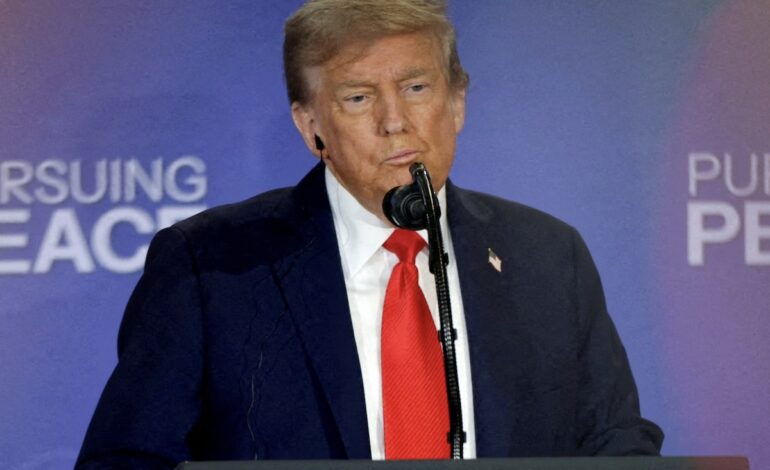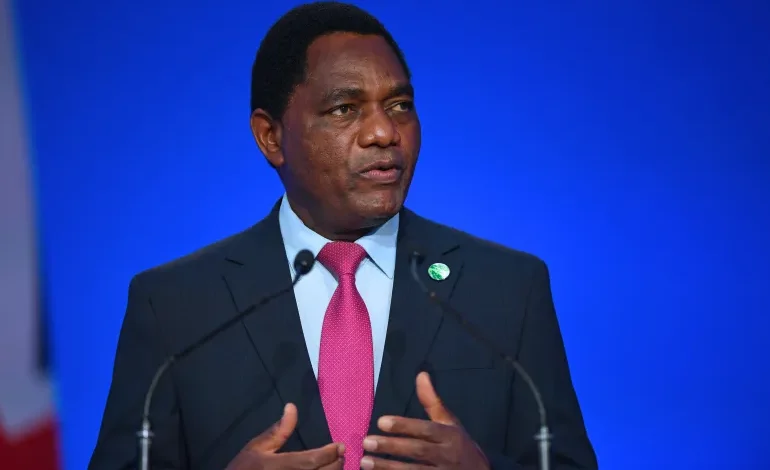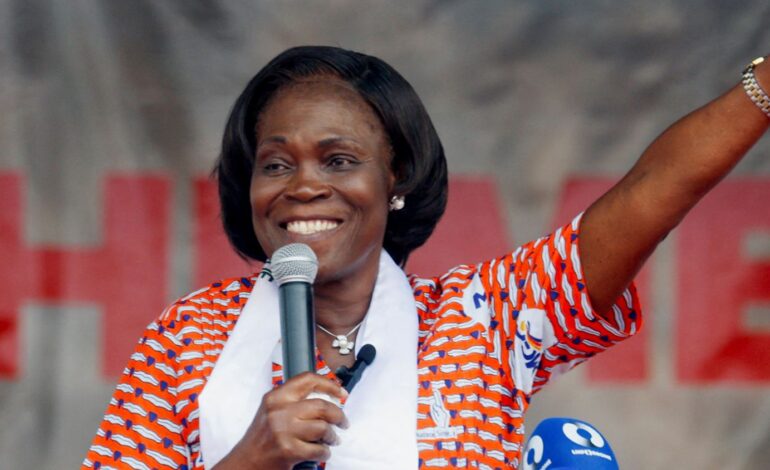
Faith Nyasuguta
Once dubbed Ivory Coast’s “Iron Lady,” Simone Gbagbo has made one of the most dramatic comebacks in African politics. The 76-year-old former first lady, who once hid in a bunker to avoid arrest, has now been cleared to run in October’s presidential election. Standing before cheering supporters in Abidjan this month, she urged them to help “build a new nation” and promised a modern, prosperous Ivory Coast if elected.
For decades Simone Gbagbo was more than just the spouse of former president Laurent Gbagbo. With degrees in history and linguistics and a career as a teacher and trade unionist, she was a political actor in her own right. In the 1970s, she met Laurent during the struggle against President Felix Houphouet-Boigny’s one-party rule. Together, they endured harassment, imprisonment and exile before co-founding the Ivorian Popular Front (FPI) in 1982. “I spent six months in prison, beaten and left for dead,” she later recalled, noting it explained why “people don’t mess with me.”
By the time Laurent won the presidency in 2000, Simone had earned a reputation for toughness inside and outside the FPI. Supporters fondly called her “maman” (“mum”), but ministers admitted they feared her clout. In a 2005 interview with L’Express, she boasted that cabinet members “often consider me above them.” She mixed evangelical faith with fiery oratory, becoming a key architect of her husband’s populist campaigns. French newspaper Le Monde once summed up their partnership: “Laurent had the good-natured gab, Simone the uncompromising discourse.”
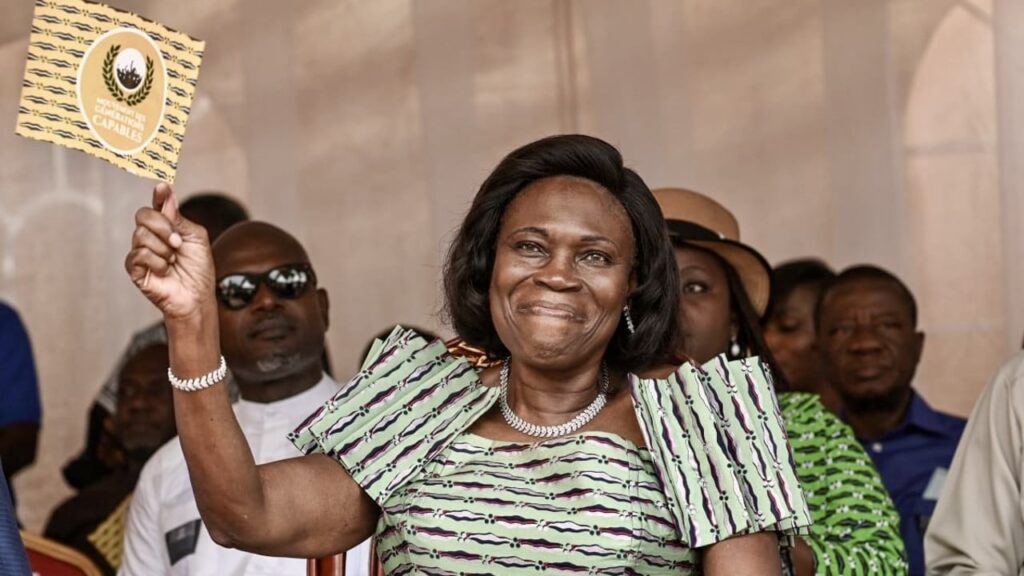
But the couple’s democratic credentials faded in power. Laurent’s embrace of “Ivoirite,” a divisive nationalism that alienated northern communities, fed a rebellion that split the country. Elections were postponed six times. When polls were finally held in 2010, he lost to opposition leader Alassane Ouattara but refused to concede. Simone staunchly defended him, branding Ouattara a “bandit leader.” The standoff triggered a five-month civil war that killed more than 3,000 people.
As pro-Ouattara forces backed by French troops closed in on the presidential residence in April 2011, the Gbagbos retreated to a bunker. They were arrested there, a humiliating end to their decade in power. Simone later told a court she was “subjected to several attempted rapes in broad daylight” during detention at an Abidjan hotel. In 2015 she received a 20-year sentence for “undermining state security” and organising armed gangs.
Yet, in 2018, President Ouattara granted her amnesty as part of a reconciliation push, paving the way for her political re-emergence. The International Criminal Court (ICC) also dropped separate charges against her. Her husband spent seven years in The Hague before being acquitted of crimes against humanity and returned home in 2021 – only to file for divorce days later, after beginning a relationship with journalist Nady Bamba. Through her lawyer, Simone accused him of “blatant and well-known adultery” and “abandonment of the marital home.”
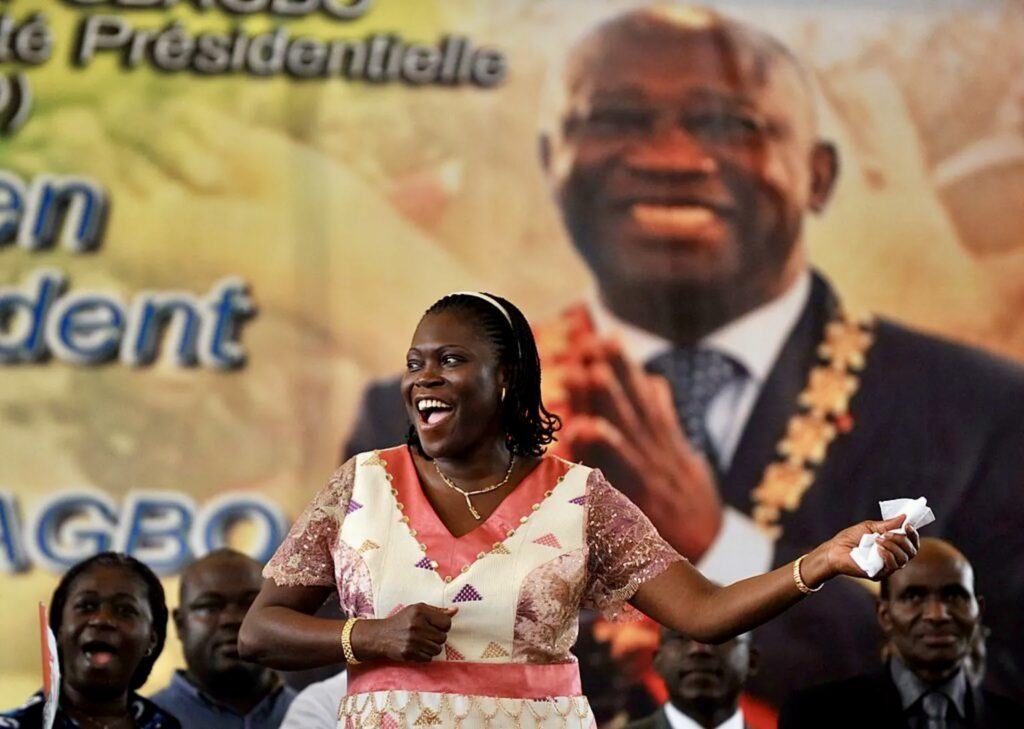
Freed from both prison and her marriage, Simone quietly rebuilt her base. Breaking with the FPI, she launched a new party, the Movement of Capable Generations (MGC), positioning it as a fresh left-wing force for “modernisation” and “prosperity.” Her campaign emphasises women’s empowerment in a country where only about 30 percent of lawmakers are female and few women hold top government jobs. Analysts say her candidacy is symbolically potent in a society still dominated by male elites.
Her critics point to her role during the 2010 – 2011 crisis as proof she cannot credibly present herself as a unifying figure. But her supporters see a seasoned veteran whose scars give her moral authority. “She’s paid her dues,” says Koffi Yao, a political science lecturer in Abidjan. “Even people who disagreed with her back then admit she’s resilient.”
The October election promises to be highly charged. President Ouattara’s ruling party remains dominant, but Laurent Gbagbo has been barred from running, and his loyalists could rally behind Simone. That would make her the most formidable challenger in the race and could turn the poll into a referendum on the Gbagbo legacy.
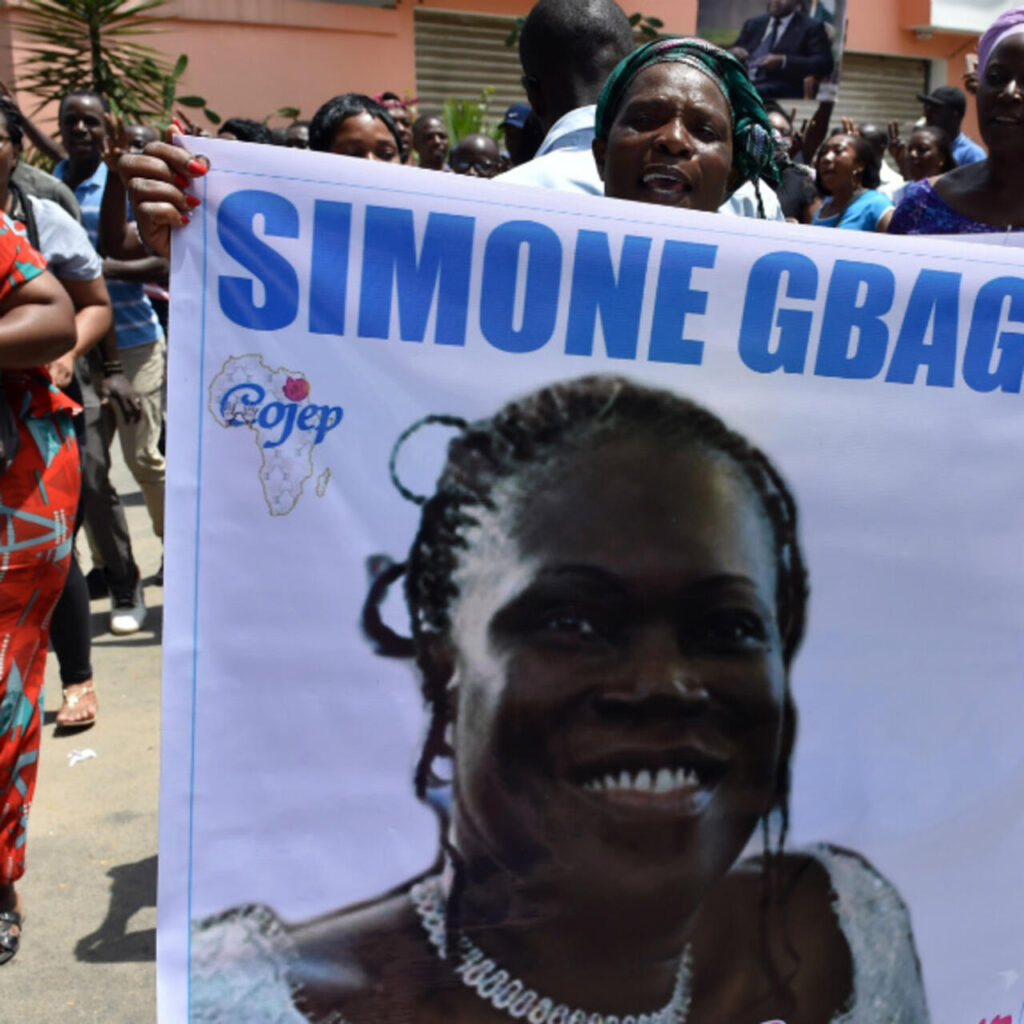
On the stump, Simone blends contrition with defiance. She highlights her years as a prisoner, invokes her Christian faith and vows to “restore dignity to Ivorians.” She also speaks directly to young voters frustrated by unemployment and corruption. Her slogan, “Building a New Nation,” echoes the language of the early pro-democracy struggles she and Laurent once waged.
If she were to win, Simone Gbagbo would make history as Ivory Coast’s first female president, capping a turbulent four-decade journey from teacher to activist, first lady, prisoner and now presidential hopeful. Even if she loses, her candidacy alone signals a shift in Ivorian politics – where a woman once feared as the “Iron Lady” is now seeking redemption at the ballot box.
RELATED:






